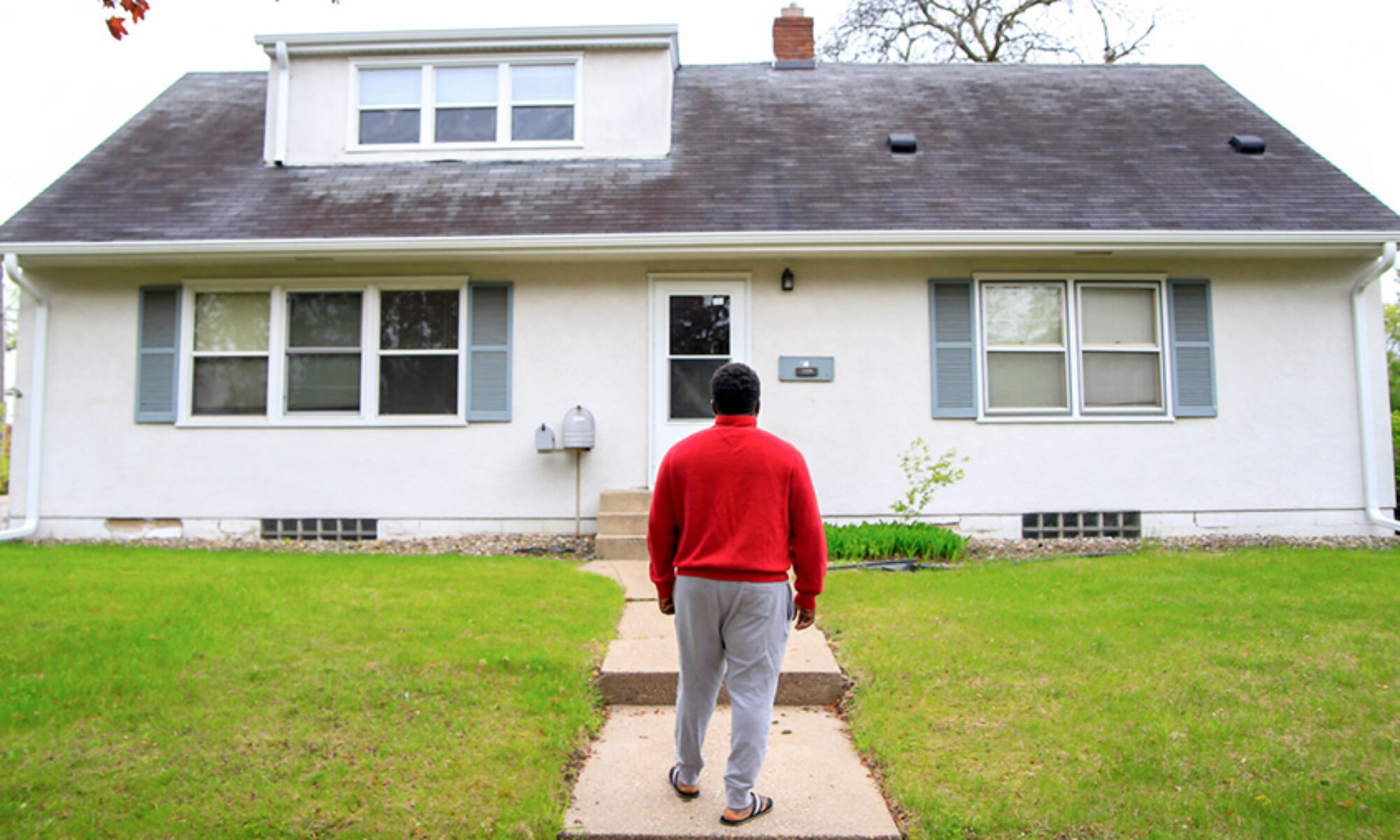By Ella Skiens with Rachael Lofgren, IAFR Staff
“I had nowhere to sleep at night. I was having a hard time.” Salana was referred to Jonathan House through a connection to the Center for Victims of Torture. Like many asylum seekers, he had been unable to find stable housing since he wasn’t allowed a work permit for the first year in the US while he waited for his asylum case to be decided.
Over the last four years, Salana shares that it was Jonathan House “who helped me with my food, my shelter, my clothes, all my needs… It was Jonathan House who helped support me, the one who carried me through this time.”
At Jonathan House, he was connected to legal services through the Advocates for Human Rights. After a long wait, Salana recently had his final asylum hearing. Before the hearing, he invited Jonathan House staff to pray with him for a favorable outcome. Staff accompanied Salana to court, waiting and praying in expectation with him. But the court-appointed interpreter didn’t show up, and after waiting for over an hour, the judge decided to reschedule.
Five days later, Salana again waited with his lawyer in the courtroom for the interpreter to arrive and help him answer the judge and defense’s questions.

But the interpreter didn’t come. Instead, something incredible happened. The judge accepted the lawyer’s appeal to decide the case then and there without an interpreter present. The judge agreed that there was credible fear of persecution based on the information submitted by the lawyer and in his asylum application. He told Salana, “my denial rate is 92%. Congratulations, and I hope you use this privilege to do good things in the United States.”
Being the 8%
It all happened so quickly that Salana was confused when everyone came up to congratulate him. Only when his friend, who spoke his language, explained did he realize he had been granted asylum. Like always, he joked with his broad smile when recounting that God had made it easy for him. His face glowed the rest of the afternoon as he celebrated with staff over a meal. He was excited to tell his large family about the victory but had to wait because it was night on the other side of the world where they lived.
Receiving asylum is the first major obstacle removed from their path toward reunification. To Salana, having asylum in the US means “a place where you can have a home and be safe from danger, and your family is safe from danger.” His hope for the future is to be with his family and to live in peace. Peace is one of the most important things to him.
And while he waits for reunification with his family, Salana compares Jonathan House to family. “They have been like a father and a mother to me. As long as I live, I will never forget what Jonathan House has done for me.”
Photo by MegHuff Photography

